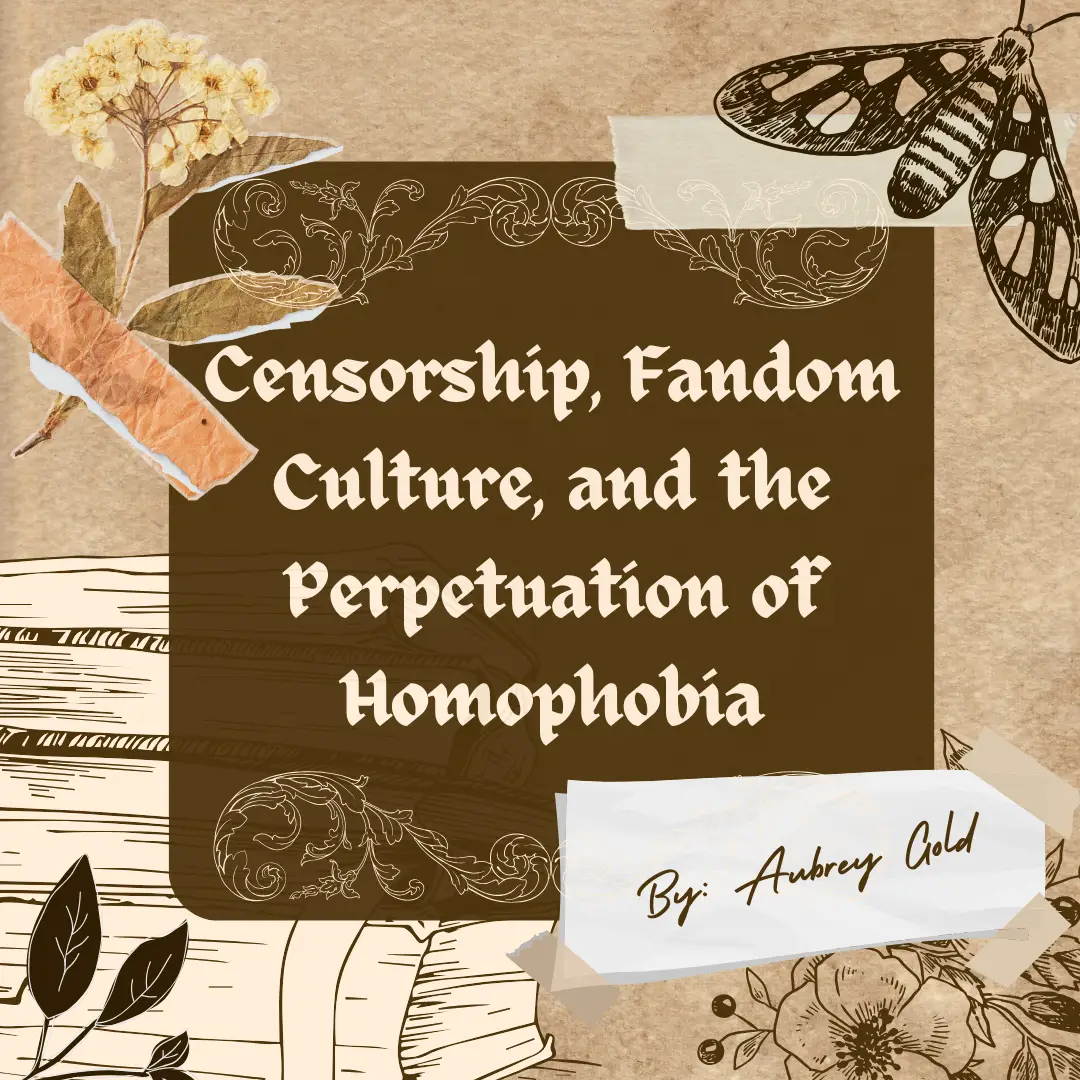
It’s widely accepted that censorship is a big problem, but it’s hard to pinpoint exactly what problems it brings. To be clear, censorship is a big issue with a wide array of effects, censorship is almost more of a topic than a problem at this point. This article will only be focusing on the problems censorship causes to the queer community. With all that being said let’s get into how censorship contributes to the continued perpetuation of homophobia.
To get into the issue at hand, it’s important to know what types of censorship there are. The one that most people know is the banning of a book or any other piece of media. Banning something is the most extreme form of censorship, and at times it can get more people to learn about the banned media than the amount of people who would have seen it had it not been banned. There’s no doubt that bans are a huge problem, but they get people talking.
Another form of censorship is to slightly alter the source material to exclude something deemed controversial or problematic. This is often seen when shows, movies, or books remove a scene when released in another country, or when they’re released in the country of origin at a later date. Since it’s on a smaller scale than outright banning something, it’s less talked about, however it typically comes to light and is discussed thoroughly in fandom spaces. The third form of censorship is a little different because it happens before the media is released. It happens when a writer wants to include something that the producer, studio, or publisher they’re working with won’t let them. This form of censorship can be more damaging than the other two because the media itself is still released, but it’s skewed to appeal to a wider audience.

The third form of censorship causes problems because it blurs the lines between what’s actually there, and what the writer wants people to see. For example, say the writer wanted to include a homosexual couple, but they aren’t allowed to have openly gay characters displayed in their story. They might have the characters refer to each other as “best friends” instead of boyfriends or girlfriends. While it’s intended for the audience to read between the lines, by giving them plotlines that are typically given to love interests, it instead blurs the lines between platonic and romantic feelings.
This kind of censorship wouldn’t be quite so damaging without fandom culture. Fandom is an online space where a large group of people discuss a single piece of media. Within these spaces there’s been a unique culture cultivated, where people can talk about their opinions on plots, characters, and romantic pairings. Fandom culture is largely centered around the romantic pairings of the media they enjoy, which isn’t a bad thing until it gets into the blurred lines.
Oftentimes people in the queer community will see the writer’s intent with how the “best friends” are written. This isn’t a bad thing, and can be extremely fun to interact with until they start treating the between lines as the clear lines. The assumption that the leading best friends in any piece of media are automatically love interests is a tiring practice that used to only happen when both leads were of opposite genders. Even if it’s the writers initial intent for the characters to be together, it didn’t actually happen in the source media. The source media using the term “best friend” gives homophobic people a way to say things like “you don’t have to make everything gay, can’t two guys(or girls) be friends anymore?”
It creates this hostility because fiction reflects real life. People get worried that people will assume that they’re gay if they have a close relationship with a friend of theirs. Even if someone isn’t homophobic, no one likes being told they like someone when they don’t. It doesn’t happen to the extent that it does when friends are of opposite genders, but the fear is still there. That fear drives them to become more vocal in their opposition of queer people.

It’s true that a lot of the issue comes from someone’s own insecurity and prejudice, and the problem of homophobia won’t be stopped by getting rid of censorship. However, censorship fans the flames of homophobia by giving them an easy excuse for it. They might not be as scared if they didn’t see people associate friendship with romance. They would still be homophobic, but it would remove a big argument. Overall, censorship doesn’t cause homophobia, but it does help perpetuate it.

